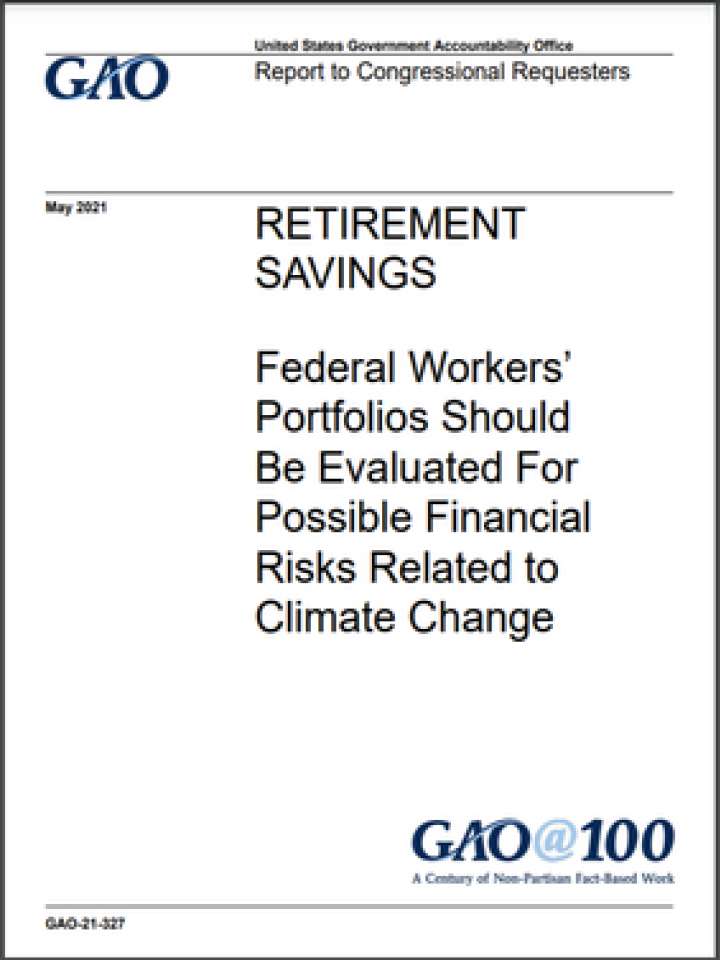Federal workers’ portfolios should be evaluated for possible financial risks related to climate change
This report examines:
- what is known about retirement plans’ exposure to climate change-related investment risks,
- what comparable retirement plans in other countries have done to address risks from climate change and how they communicate this information to the public, and
- what steps FRTIB has taken to address investment risks from climate change.
Climate change is expected to have widespread economic impacts and pose risks to investments held by retirement plans, including the federal government’s TSP. As of November 2020, TSP had 6 million active and retired federal employee participants and nearly $700 billion in assets. GAO was asked to examine how the agency that oversees TSP has addressed its exposure to such risks. GAO reviewed relevant literature and interviewed representatives from investment consulting firms and other stakeholders knowledgeable about climate change and its possible financial impacts. GAO reviewed documents and interviewed officials from selected retirement plans for public- and private-sector employees in the United Kingdom, Japan, and Sweden identified as examples of plans that are addressing climate risks. GAO also reviewed TSP documents, and interviewed FRTIB officials.
GAO recommends that FRTIB evaluate TSP’s investment offerings in light of risks related to climate change. FRTIB did not indicate whether it agreed or disagreed with the recommendation and stated that it subscribes to a strict indexing discipline and efficient market theory.
Explore further
